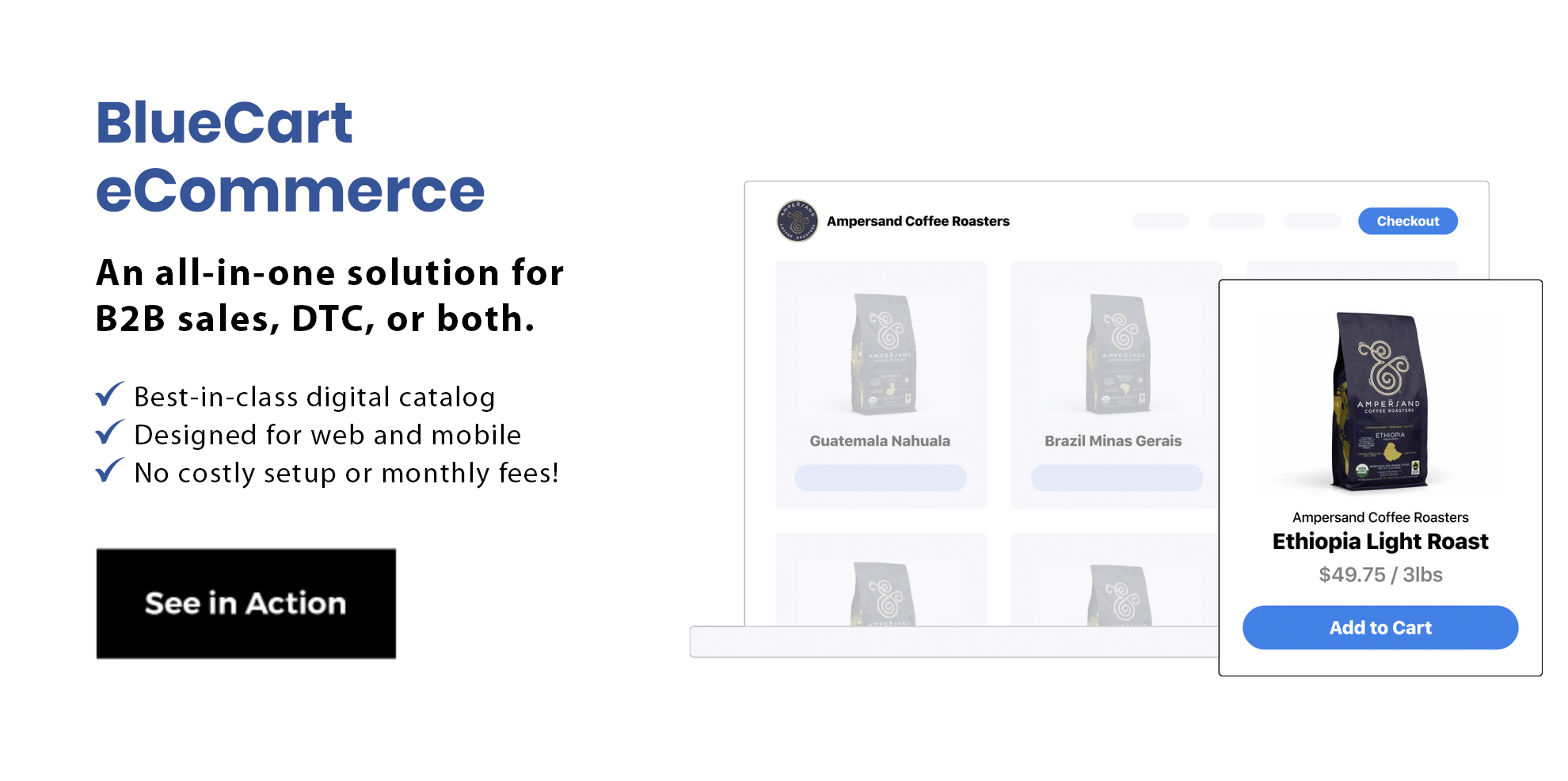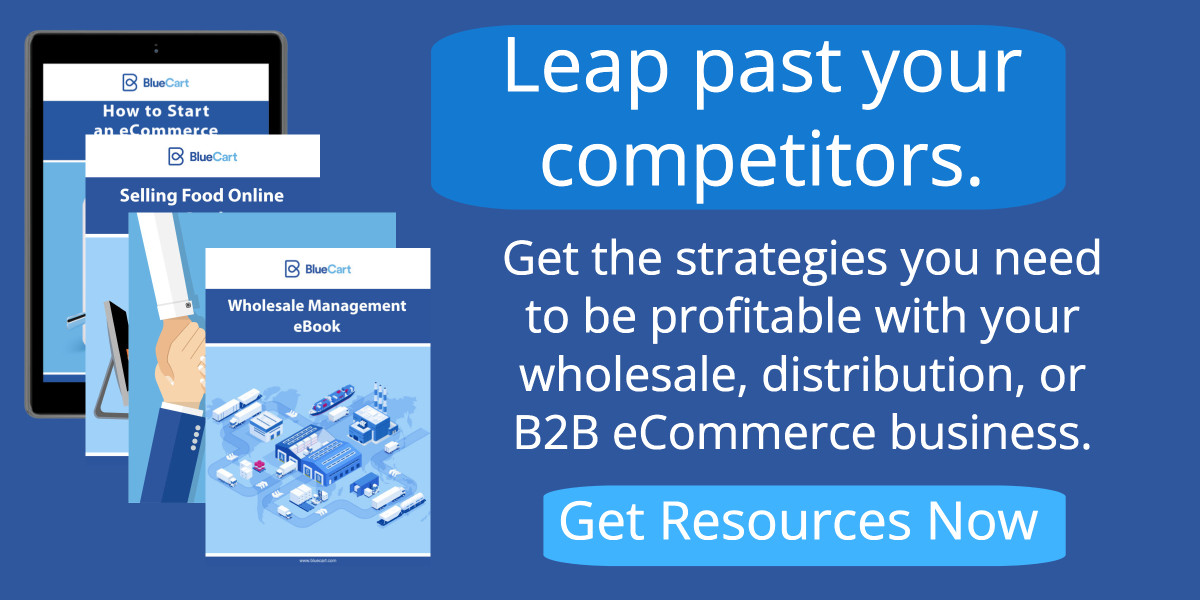Are you starting an ecommerce business or just looking for some eCommerce business ideas?
Then the first thing you need to know is what eCommerce means. You see the term everywhere today, but what exactly is it?
Read on to discover part of our eCommerce business guide on what eCommerce means, what an eCommerce business is, and a bit about the history of eCommerce.

What’s eCommerce? What Does eCommerce Mean?
eCommerce, also called electronic commerce or internet commerce, is the buying and selling of products or services over the internet. This may be the only way a business conducts business, or it could supplement an existing brick and mortar store. All that matters is DTC advertising, selling, and completing the transaction online.
The term originated in 1994 when the first online transaction took place on the website NetMarket. A single CD from the band Sting was sold to a friend. The industry only grew from there with more than 25% of all businesses in the world now operating solely online (IBISWorld). In fact, the industry is so important today that we had to compile the best eCommerce books and the best eCommerce blog for you.
eCommerce or e-Commerce?
Both eCommerce and e-Commerce are acceptable ways to write this word (at BlueCart, though, we write it as “eCommerce”). In its early years, the hyphen was commonly used and can be found in many textbooks and articles from the early 2000s. This mirrors how the word email used to be spelled e-mail when it was brand new.
Today, per Google search trends, eCommerce is the most common spelling. This is likely because digital marketers preferred this spelling and it began to use it everywhere. From there it caught on and the rest is history.
What Is eCommerce Business?
An eCommerce business is a business that operates mostly or entirely via the internet. There are four major types of eCommerce businesses:

They are:
- Direct to consumer business model (DTC). Here, the business sells its products directly to individual customers, which refers to the D2C meaning and common practices. This is the most common form of eCommerce and there are more direct-to -consumer companies than any other type. These businesses have access to a large base of customers, but order value is low. That's one of the major B2B vs B2C differences.
- Business to business model (B2B). In this model, a B2B business sells its products or services to another business. The second business will then either resell the product or use it. These companies may host their own site, or sell to other businesses via a B2B eCommerce platform like BlueCart eCommerce. This gives them access to thousands of customers while taking away the stress of website creation, design, and reporting. It's like a wholesale directory where you can buy wholesale products. Interested in learning how to become a wholesaler? We have plenty of content to assist you, including blogs about MOQ, how to get a wholesale license, all you need to know about a wholesale purchase agreement, and so much more.
- Consumer to business model (C2B). Here, individual consumers sell directly to a business, essentially the reverse of direct to consumer brands. These models are almost entirely based on services, like a freelance business owner or independent contractors. A third party owns the site and connects the parties while collecting a small fee. It's a good alternative to investing in a headless eCommerce platform.
- Consumer to consumer business model (C2C). Often called a consumer online marketplace, these sites allow individuals to sell products or services to one another from various types of marketplaces. The site is an independent company that takes a percentage of each sale. These sites are great for people who want to do things like sell wine from home or sell online in another industry.
eCommerce Trends
The eCommerce industry continues to have exponential growth and shows no signs of slowing down. Here are some interesting data points and eCommerce trends to illustrate what we mean:
- eCommerce sales are expected to reach $5.5 trillion worldwide by the end of 2022 (Shopify).
- The eCommerce industry is seeing more than 20% growth each year.
- 93% of all global internet users have made at least one purchase online.
- By 2040, an estimated 95% of all purchases will be made via eCommerce.
- 51% of digital shoppers make purchases with their smartphones.
- Nearly one-third of all consumers buy products online every week.
- 43% of all eCommerce traffic comes through eCommerce SEO.
- 25% of all businesses now sell products through social media.
- China is the biggest eCommerce market. As of 2021, China’s eCommerce sales reached $1.3 trillion and is projected to increase to almost $2 trillion by 2025 (World Economic Forum).
- More than 90% of customers will not convert if there are perceived issues with eCommerce fulfillment, eCommerce shipping, or eCommerce packaging.
What Is an eCommerce Site?
An eCommerce site is a website specifically built to sell products or services to customers. The entirety of the transaction takes place online, including the eCommerce payment. That's why there are so many options on the market for eCommerce software.
One form of eCommerce site that has massively grown in popularity over the past two decades is the online marketplace. These sites let consumers or businesses sell products directly to one another while paying a small fee to the site owner. For food suppliers, BlueCart eCommerce is the ideal choice.
With an industry-leading digital catalog, integrated payment processing, and a slew of reports businesses can connect with customers and make DTC food and B2B sales easily. It's even great at cross selling.

Frequently Asked Questions About What eCommerce Is
What Is the Difference Between eCommerce and eBusiness?
eCommerce businesses revolve around processing transactions online, while an eBusiness offers all business services online. For example, consumers can purchase goods online through an eCommerce site. On the other hand, an eBusiness can be used to help open a digital storefront, support the online presence of a business, and so on.
What are the Benefits of eCommerce?
Some of the most advantageous reasons to run an eCommerce business are:
- A quick and seamless checkout process.
- An eCommerce business is one of the simplest storefronts to launch.
- Data pertaining to orders and customers can remain in one platform.
- Accept online payments and stay protected against fraud with a secure system for both merchants and shoppers.
- Online stores can offer flexible pricing and discounts for customers.
- Third-party integrations for marketing tools, such as eCommerce email marketing platforms, chat boxes, and more.
- It’s a cost-effective way of handling business for dropshipping and white labeling products.
What Are the Main Activities of eCommerce?
Many tasks are a part of running an eCommerce business. On a day-to-day basis, teams should expect to monitor or accomplish the following tasks:
- List products with proper ad copy: As you launch or discontinue a product, you’ll need to update your listings with an eCommerce website builder. Double check your product description pages to make sure you list the right details, price, FAQ section, direction, etc.
- Accept and process new payments: eCommerce payment processing is a major component of eCommerce business management. Ensure that the correct number of orders are processing, confirm any fraud alerts, and that any customers expecting a refund get their money back. Ensure that you utilize one of the many payment gateway providers that are trustworthy and efficient.
- Issue any immediate refunds and returns: Once a team member agrees to issue a refund, they must take action immediately. If your eCommerce business sells consumer goods or digital products, and you supply someone with a packing slip or one from a shipping label printer, the refund should be given right after you see their product has been shipped back to you. Not all eCommerce platforms have notifications set up to alert the team of these matters. So, there must be a system in place where someone closely monitors outstanding returns, refunds, and defective products. One of the biggest issues that can hurt an eCommerce business is when refunds are not granted for returned product(s). Knowing this, avoid this situation at all costs.
- Handle any outstanding customer service issues: Happy customers drive a successful business. If you’re not able to offer a 24/7 chat or hotline, prioritize customer inquiries as soon as possible. From product questions to refund requests, quick response times will demonstrate responsible and caring attitudes from your team to customers.
- Organize eCommerce accounting duties: From paying various kinds of taxes to basic bookkeeping, utilize an accounting software to streamline such responsibilities. Or, hire a CPA to ensure timely payments and accuracy. As your eCommerce business grows, financial data can become complex. By making sure that you’re up to date with all expenses and dues, you’ll be able to better allocate existing funds and plan for the future.

If You Don't Know, Now You Know
eCommerce businesses and websites now make up a significant percentage of businesses in the 21st century. Each year we will continue to see growth, and more entrepreneurs are starting eCommerce businesses every day. Using new platforms and tools is all part of becoming an entrepreneur and the entrepreneur mindset, so it’s common to see people building digital storefronts. Just make sure to pay attention to your eCommerce analytics or you'll never be able to intelligently increase eCommerce sales.
Running an eCommerce business takes a lot of effort. That's why our team created BlueCart eCommerce, to help make it easier for food suppliers and their customers to connect. It's an all-in-one solution that works as both a DTC and B2B wholesale marketplace and looks like a streamlined line sheet.